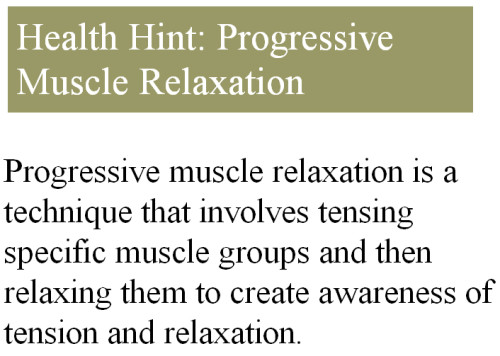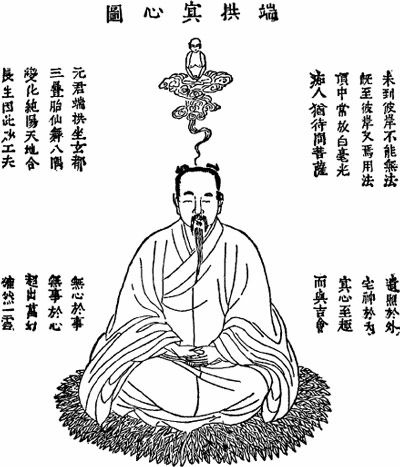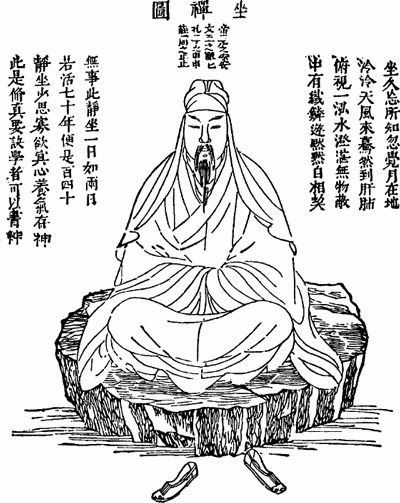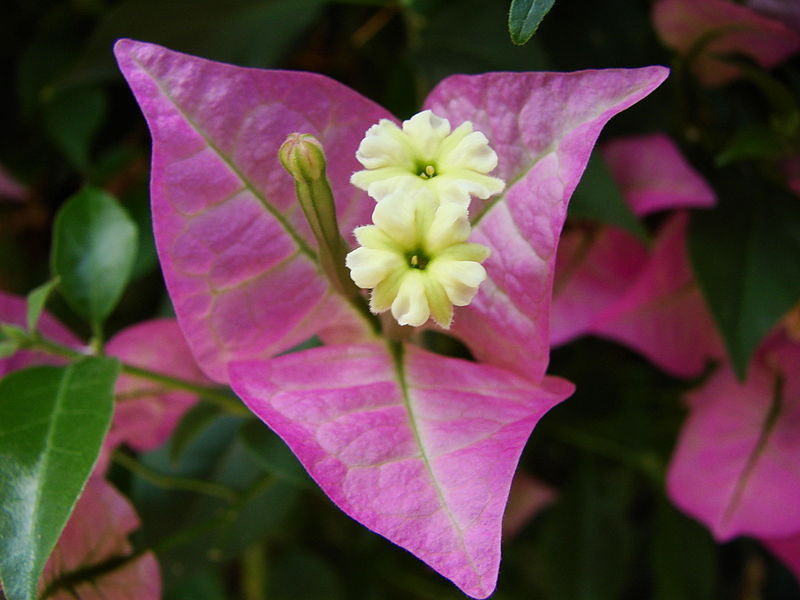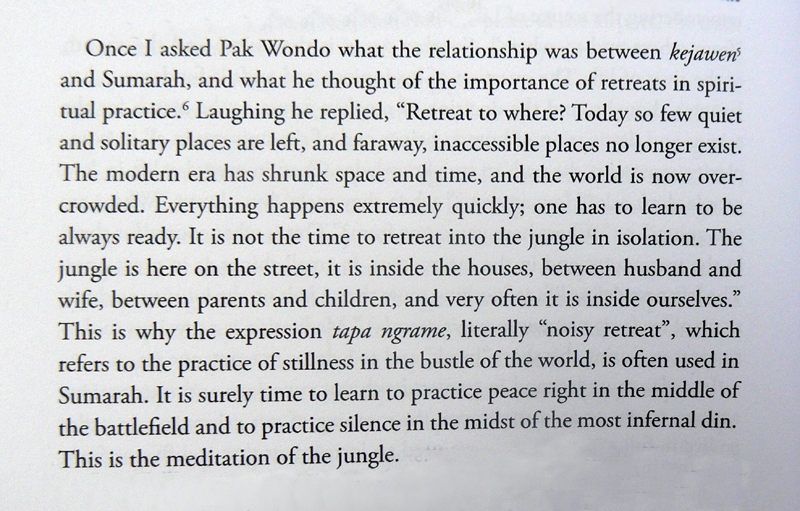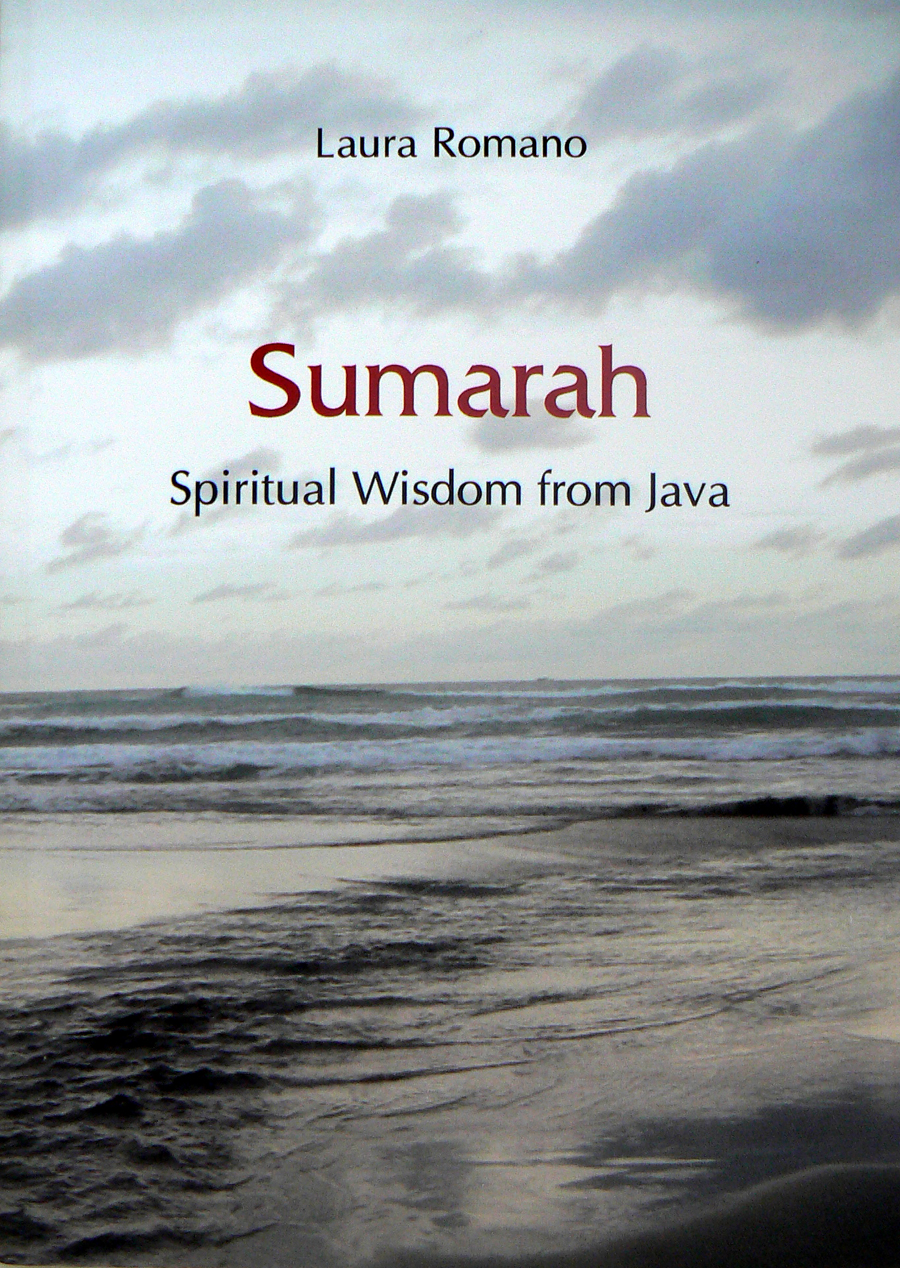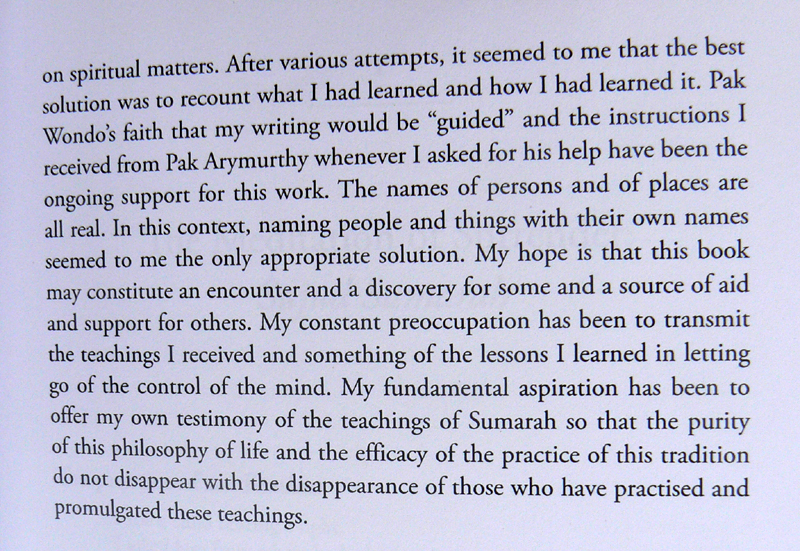meditation
Signs of… the Golden Flower
Master Lü-tsu said, Your work will gradually become concentrated and mature, but before you reach the condition in which you sit like a withered tree before a cliff, there are still many possibilities of error which I would like to bring to your special attention. These conditions are recognized only when they have been personally experienced […] In meditating, a man must have a sort of conscious intuition, so that he feels energy and breathing unite in the field of the Elixir; he must feel that a warm release belonging to the true light is beginning to stir dimly. Then he has found the right space. When this right space has been found, one is freed from the danger of getting into the world of illusory desire or dark demons.
Meditation, Stage 3: Separation of the spirit-body for independent existence.
Master Lü-tsu said, There are many kinds of confirmatory experiences. One must not content oneself with small demands but must rise to the thought that all living creatures have to be redeemed. One must not be trivial and irresponsible in heart, but must strive to make deeds prove one’s words.
If, when there is quiet, the spirit has continuously and uninterruptedly a sense of great joy as if intoxicated or freshly bathed, it is a sign that the hght-principle is harmonious in the whole body; then the Golden Flower begins to bud. When, furthermore, all openings are quiet, and the silver moon stands in the middle of heaven, and one has the feeling that this great earth is a world of light and brightness, that is a sign that the body of the heart opens itself to clarity. It is a sign that the Golden Flower is opening.
The Secret of the Golden Flower
circulation of the light The Secret of the Golden Flower
If one practises the circulation of the light, one must forget both body and heart. The heart must die, the spirit live. When the spirit lives, the breath will begin to circulate in a wonderful way.
Children, take heed! If for a day you do not practise meditation, this light streams out, who knows whither? If you only meditate for a quarter of an hour, by it you can do away with the ten thousand aeons and a thousand births. All methods end in quietness. This marvellous magic cannot be fathomed.
Meditation, Stage 1: Gathering the light
But when the practice is started, one must press on from the obvious to the profound, from the coarse to the fine. Everything depends on there being no interruption. The beginning and the end of the practice must be one. In between there are cooler and warmer moments, that goes without saying. But the goal must be to reach the vastness of heaven and the depths of the sea, so that all methods seem quite easy and taken for granted. Only then have we mastered it.
All holy men have bequeathed this to one another: nothing is possible without contemplation (fan-chao, reflection). When Confucius says: ‘Perceiving brings one to the goal’; or when the Buddha calls it: ‘The vision of the heart’; or Lao-tse says: ‘Inner vision’, it is all the same.
The Secret of the Golden Flower
Meditation is not… Jiddu Krishnamurti
Meditation is not the repetition of the word, nor the experiencing of a vision, nor the cultivating of silence. The bead and the word do quieten the chattering mind, but this is a form of self-hypnosis. You might as well take a pill.
Meditation is not wrapping yourself in a pattern of thought, in the enchantment of pleasure. Meditation has no beginning, and therefore it has no end.
If you say: “I will begin today to control my thoughts, to sit quietly in the meditative posture, to breathe regularly” – then you are caught in the tricks with which one deceives oneself. Meditation is not a matter of being absorbed in some grandiose idea or image: that only quietens one for the moment, as a child absorbed by a toy is for the time being quiet. But as soon as the toy ceases to be of interest, the restlessness and the mischief begin again. Meditation is not the pursuit of an invisible path leading to some imagined bliss. The meditative mind is seeing – watching, listening, without the word, without comment, without opinion – attentive to the movement of life in all its relationships throughout the day. And at night, when the whole organism is at rest, the meditative mind has no dreams for it has been awake all day. It is only the indolent who have dreams; only the half-asleep who need the intimation of their own states. But as the mind watches, listens to the movement of life, the outer and the inner, to such a mind comes a silence that is not put together by thought.
Now his eyes were becoming brighter; there was a movement in his body. He looked out of the window, and he was slowly beginning to catch fire.
”Then what am I to do?”
You can’t do anything. Keep out of it! And listen; and see the beauty of that flower.
J. Krishnamurti “The Only Revolution”
Noisy Retreat "Sumarah - Spiritual Wisdom from Java"
Sumarah Meditation Laura Romano
In recent years “meditation” has joined the list of those unfortunate words whose meaning have been damaged.
When a word is constantly used and is emotively charged by the importance of what is being communicated, it often becomes overcharged, and, paradoxically, its communicative value diminishes. It is weakened, and its meaning loses flavour and intensity. Many words have suffered this fate, above all those which define important existential concepts. Words such as “love”, “happiness”, “consciousness”, “understanding”, “feeling”, “spirit”, and “soul” have such a wide spectrum of interpretations that it is hard to use them without feeling the constant need to redefine them. It is almost as if the emotional charge and the need to express it lead to over-use and to the progressive distortion of the original meaning and values of the most important words.
In recent years “meditation” has joined the list of those unfortunate words whose meaning have been damaged, both because mistaken idealisations, and because of ideological preconceptions that have obscured there meaning and weighed them down 1)↓…
When the word begins to be disorienting and to cause confusion instead of clarifying, it can be useful to look at its etymology. The term “meditation” derives from the Latin meditari which means “reflect to cure”, coming from the same root med from which “mode”, “measure”, and “medicine” derive. It is significant here that in antiquity, the magus, the priest or priestess, and the healer were often the same person. This etymological meaning of meditation reflects well the practice of Sumarah, wherein meditation is considered as way of being, an instrument of life and for life, and not as an end in itself. It is like a means of transport, and, like any means of transport, meditation is there to take us to where we want to go; once we get there, we get off…
Continue reading
| 1. | ↑ | see about the word “God” – the second Pak Wondo session |
Sumarah Laura Romano
[Pak Wondo session 1], [Pak Wondo session 2], [Pak Wondo session 3]
To speak of Sumarah is to speak of meditation and this is not easy…
